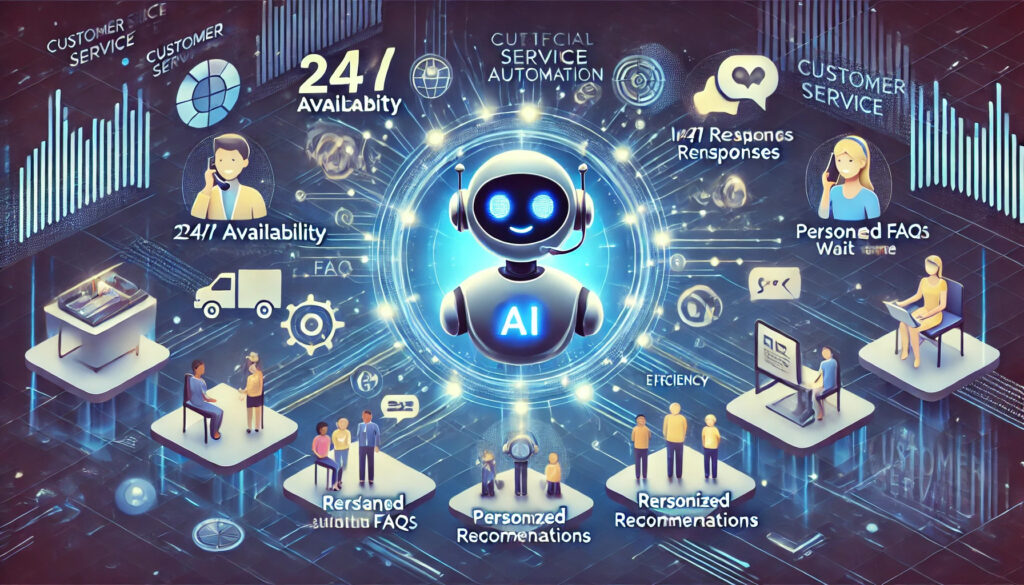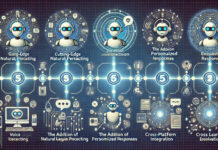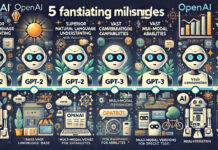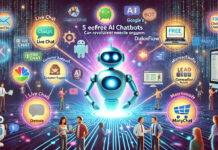The Customer Service Problem
In the digital age, businesses face increasing pressure to meet rising customer expectations. Modern consumers demand fast, efficient, and personalized service at all hours of the day. However, providing 24/7 customer service is costly and resource-intensive. The growing complexity of customer interactions—ranging from routine inquiries to complex troubleshooting—further exacerbates this challenge. With global markets expanding and competition increasing, traditional customer service models often fall short of delivering the responsiveness and scalability businesses require.
The limitations of human-powered customer service are becoming more evident as customer bases grow. Human agents can handle only a finite number of interactions, are prone to error, and cannot provide 24/7 availability without significant overhead costs. Moreover, handling repetitive inquiries consumes valuable time that agents could spend on more complex customer concerns. This is where artificial chat systems, powered by AI technologies like IBM Watson, Google Dialogflow, and others, offer transformative solutions. These systems automate routine tasks, improve efficiency, and enable businesses to offer continuous support without drastically increasing operational costs.
Automation, driven by artificial intelligence (AI), has not only solved the problem of scalability but also improved the quality of customer interactions. AI chat systems analyze data and provide intelligent responses, ensuring that customers receive accurate information promptly. As a result, businesses can maintain high standards of service without the need for a massive customer service workforce. With AI, businesses also benefit from the ability to learn from customer interactions, making services more responsive and tailored over time.
In this article, we will explore the three surprising benefits of using artificial chat in customer service automation, with a focus on how big tech solutions from companies like IBM, Google, and Amazon have helped transform customer support. These benefits include enhanced response speed, personalized customer experiences, and significant cost reductions.

1. Enhanced Response Speed
The evolution of instant responses
In today’s fast-paced world, customers expect real-time responses to their inquiries, whether it’s a simple question about product availability or a complex issue regarding technical support. The rise of artificial chat systems has revolutionized the speed at which businesses can address customer needs. These systems provide instant, automated responses to routine queries, reducing wait times and improving customer satisfaction. Unlike human agents, who may be limited by work hours or capacity, AI chat systems are available 24/7, ensuring that customers receive assistance at any time of day.
The ability to provide near-instant responses is a key advantage of AI-driven chatbots. When customers interact with a chatbot, they can receive immediate answers to their questions without waiting in a queue or for a callback from a customer service representative. This instant response capability has dramatically improved the customer experience by reducing frustration and enhancing engagement. As a result, companies using AI chat systems have seen measurable improvements in customer retention and loyalty.
Key players in AI response innovation
Several major tech companies have developed leading AI solutions to meet the growing demand for faster customer service responses. IBM Watson is a prime example of a system that has been used by enterprises across industries to deliver real-time customer support. Watson’s advanced natural language processing (NLP) capabilities enable it to understand and interpret customer queries, regardless of complexity or phrasing, and respond quickly and accurately.
Google Dialogflow is another prominent player in the AI chatbot space. Integrated with Google Cloud AI services, Dialogflow allows businesses to build sophisticated chatbots that deliver quick, contextually relevant responses. Dialogflow’s AI models are trained to understand user intent, making it possible to offer personalized responses in real-time. Amazon, with its Lex chatbot system (the underlying technology behind Alexa), is also a leader in providing real-time customer service solutions. Amazon Lex enables businesses to create conversational agents that can handle voice and text-based interactions efficiently.
Automating common queries
One of the primary ways artificial chat systems enhance response speed is by automating the most common customer inquiries. Questions such as “What are your hours of operation?” or “How do I return an item?” are easily handled by AI chatbots. These systems are pre-programmed with a wide range of FAQs and can provide accurate responses instantly, eliminating the need for human intervention in these routine interactions. By automating these repetitive tasks, businesses can drastically reduce response times for simple queries while freeing up human agents to focus on more complex customer issues.
Both Google Dialogflow and IBM Watson Assistant excel in this area. They allow businesses to build and customize automated response flows that can handle a variety of common customer inquiries. For instance, Google Dialogflow can be programmed to manage order tracking, provide product recommendations, or guide customers through a troubleshooting process—all in real-time. This not only improves customer satisfaction but also ensures that human agents are available for higher-level tasks.
Real-time communication improvements
Another major advantage of artificial chat systems is their ability to provide real-time communication improvements by learning from customer interactions. AI chat systems continuously analyze data from past interactions, enabling them to offer more accurate and personalized responses over time. For instance, IBM Watson uses machine learning algorithms to refine its responses based on previous conversations, ensuring that the system becomes more effective as it processes more interactions.
Similarly, Google Dialogflow employs real-time learning to improve the accuracy of its responses. As the system interacts with customers, it identifies patterns in how users phrase questions and provides more contextually relevant answers. These advancements in AI-driven real-time communication ensure that businesses can maintain high levels of customer satisfaction while scaling their operations.
Assessing the impact on customer satisfaction
Faster response times translate directly into higher customer satisfaction levels. Customers today value speed as much as they do the quality of the response. IBM Watson and Google Dialogflow provide tools to track performance metrics such as average response times, resolution rates, and customer sentiment. By using these AI-driven insights, businesses can continually refine their customer service processes to meet evolving expectations. Artificial chat systems have proven to reduce average response times from hours or minutes to just seconds, resulting in substantial improvements in customer experience and loyalty.
2. Personalized Customer Experienceistorical challenges in personalization
Personalized customer service has long been a challenge for businesses. In traditional customer service models, agents often struggled to deliver personalized experiences due to high volumes of inquiries and limited access to comprehensive customer data. With human agents handling multiple interactions daily, it was difficult to remember individual customer preferences or provide tailored responses. AI has completely changed this dynamic by allowing businesses to offer personalized customer experiences at scale, ensuring that each interaction feels relevant and meaningful.
Leading organizations in personalized AI chat
Several companies have developed AI chat systems that focus on delivering personalized experiences. IBM Watson is at the forefront of this trend, offering powerful tools for personalizing customer interactions. Watson’s AI-driven chat systems analyze customer data such as purchase history, previous interactions, and browsing behavior to tailor responses to each individual. By integrating with customer relationship management (CRM) systems, Watson allows businesses to provide seamless, personalized customer experiences across various channels.
Salesforce, a leader in CRM solutions, has also integrated AI chat into its platform to deliver personalized service. Through its Einstein AI, Salesforce enables businesses to use data to craft personalized responses, anticipate customer needs, and provide proactive support. This integration ensures that each customer feels valued, improving engagement and increasing the likelihood of customer retention.
Data-driven personalization
One of the most powerful features of AI chat systems is their ability to use vast amounts of data to drive personalized interactions. IBM Watson and Google Dialogflow rely heavily on customer data to shape the conversation and make each interaction unique. For example, if a returning customer contacts support, Watson can pull up their order history and tailor its responses accordingly, offering relevant product recommendations or addressing specific concerns based on their past interactions.
These AI systems also analyze behavior in real-time, adjusting the conversation flow based on user actions. For instance, Google Dialogflow can track a user’s journey through a website or app and provide relevant information based on their browsing history. This level of data-driven personalization enables businesses to engage with customers in a way that feels intuitive and helpful.
Understanding communication styles
Another key feature of modern artificial chat systems is their ability to adapt to different communication styles. IBM Watson and Google Dialogflow have advanced NLP capabilities that allow them to detect nuances in customer language, such as formality, tone, and urgency. This enables chatbots to adjust their responses accordingly, ensuring that they communicate in a manner that resonates with the customer. For instance, a chatbot may respond more formally to a business customer but adopt a more casual tone when interacting with a younger, consumer-oriented audience.
This adaptability helps ensure that customers feel understood and respected, which enhances the overall experience. It also allows businesses to maintain a consistent brand voice while offering personalized service at scale.
Personalization vs. privacy concerns
While AI-driven personalization offers many benefits, it also raises concerns around data privacy. IBM Watson and Google have taken steps to address these concerns by ensuring that their systems comply with data protection regulations such as GDPR. IBM Watson, for example, enables businesses to encrypt sensitive customer data and implement strict access controls, ensuring that privacy is maintained while offering personalized services. Similarly, Google Dialogflow provides robust data privacy measures, giving businesses confidence that they can deliver personalized interactions without compromising customer trust.
3. Cost Reduction and Efficiency
Early cost challenges in customer service
In traditional customer service models, businesses faced significant cost challenges. Scaling customer service operations often required hiring and training large teams of agents, which was both time-consuming and expensive. As customer bases grew, the operational costs associated with maintaining high levels of customer service became prohibitive. However, artificial chat systems have changed the game by offering businesses a cost-effective way to scale their customer service efforts without a proportional increase in costs.
AI adoption in large enterprises
Large enterprises like Amazon, Google, and IBM have been at the forefront of adopting artificial chat solutions to manage their customer service demands. IBM Watson Assistant is widely used across industries to automate customer interactions and reduce service costs. Watson’s ability to handle a wide range of customer inquiries, from simple FAQs to more complex troubleshooting, allows businesses to scale their operations while keeping costs in check.
Similarly, Amazon Lex, which powers Alexa, has enabled businesses to automate their customer service processes, reducing the need for large support teams. With Lex, businesses can create chatbots that handle thousands of interactions per day, minimizing the need for human intervention. This not only reduces costs but also allows businesses to provide more consistent service to their customers.
Cost-effective scalability
One of the key advantages of artificial chat systems is their scalability. As customer demand increases, AI chat systems can handle a growing number of interactions without the need for additional staff. Both Google Dialogflow and IBM Watson offer scalable solutions that allow businesses to expand their customer service operations without the high costs associated with hiring and training more agents. This scalability is particularly valuable for businesses experiencing rapid growth, as it allows them to maintain high levels of customer service while controlling costs.
Automation of repetitive tasks
AI chat systems excel at automating repetitive customer service tasks, such as answering common questions, processing returns, or troubleshooting basic issues. By automating these tasks, businesses can significantly reduce the workload for their human agents, allowing them to focus on more complex or high-value interactions. Google Dialogflow and IBM Watson Assistant both provide tools that enable businesses to build customized chatbots capable of automating these tasks, freeing up human resources and reducing operational costs.
Evaluating financial benefits and efficiency
Businesses that have adopted artificial chat systems report significant financial benefits. For example, companies using IBM Watson Assistant have seen up to a 30-50% reduction in customer service costs due to automation. Similarly, businesses using Google Dialogflow report improved efficiency and cost savings by automating repetitive tasks and scaling customer service operations without the need for additional staff. These cost savings, combined with the ability to provide faster, more personalized service, make AI chat systems a critical tool for modern businesses looking to optimize their customer service efforts.
Conclusion: The Future of Artificial Chat in Automation
The benefits of artificial chat in customer service automation are clear. AI-powered chat systems like IBM Watson, Google Dialogflow, and Amazon Lex have revolutionized the way businesses interact with their customers, offering faster response times, personalized experiences, and cost savings. As AI technology continues to evolve, these systems will become even more integral to business operations, helping companies provide better service while controlling costs.
The future of customer service is likely to be shaped by advancements in AI and machine learning. As AI chat systems become more sophisticated, businesses will be able to automate even more complex customer interactions, providing a seamless experience across multiple channels. However, as AI continues to play a larger role in customer service, businesses must remain vigilant about privacy concerns and ensure that their AI systems are transparent and ethically designed.
Ultimately, artificial chat systems are set to redefine the customer service landscape, providing businesses with the tools they need to meet the growing demands of today’s consumers while maintaining operational efficiency and cost control.



